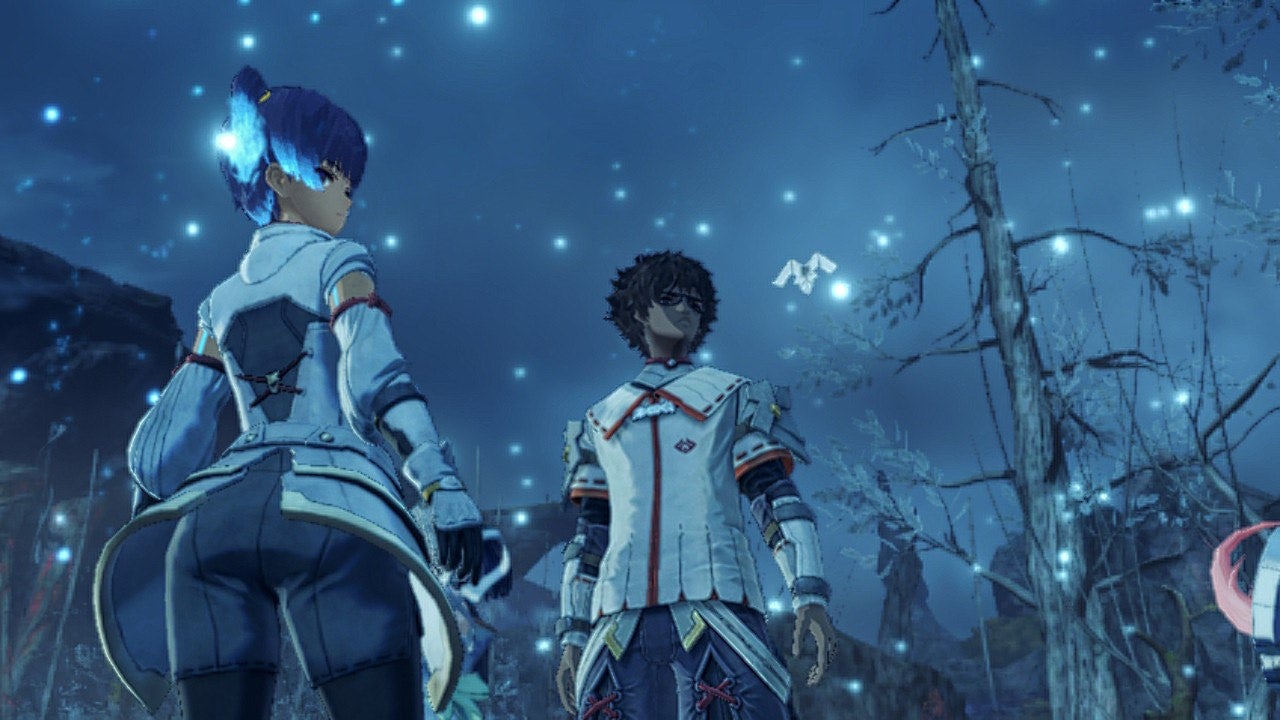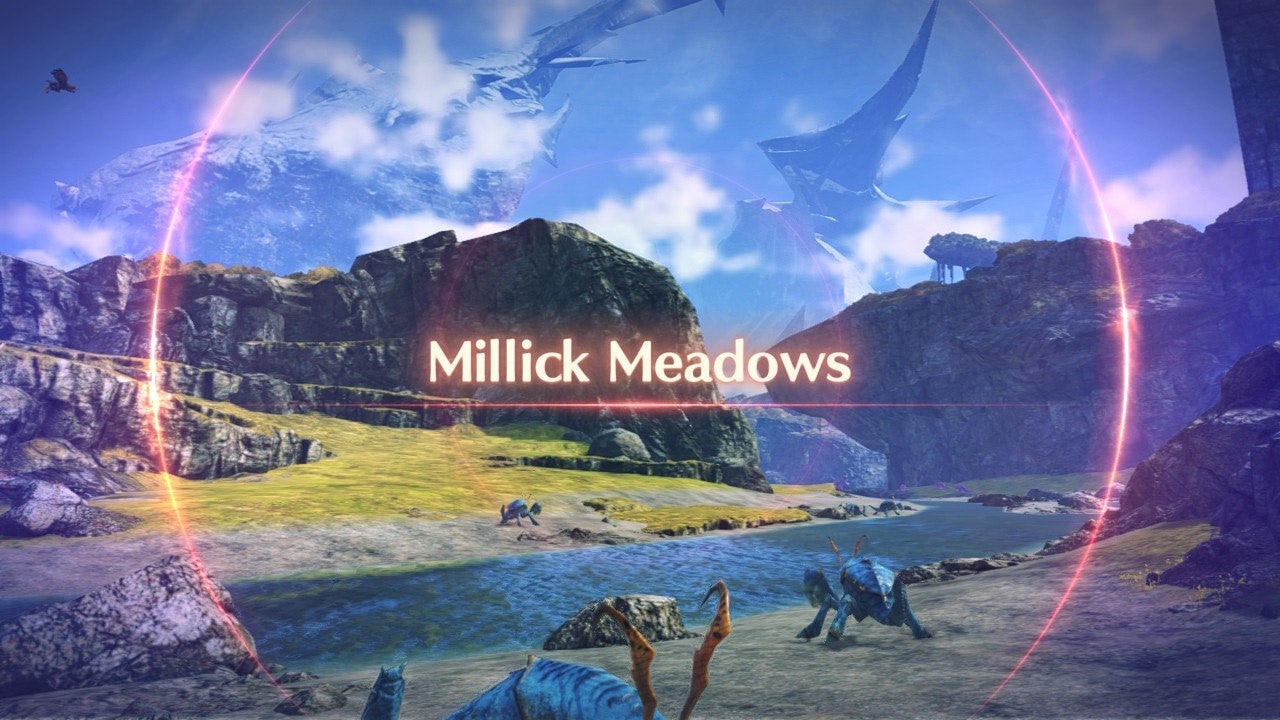Still, I can tell you some of the pertinent stuff. If you’re a returning fan, know this: Xenoblade Chronicles 3 takes the best bits of the preceding games, folding in a fascinating evolution of Xenoblade Chronicles 2’s broad and brilliant combat, the more defined fantasy of the original (and ditching some of the more embarrassing anime excesses) and some of the more open-ended elements of Xenoblade Chronicles X (though sadly I can’t really go into any detail on them just yet). Perhaps most importantly, it’s technically far more impressive than the clearly compromised Xenoblade Chronicles 2. That was a launch year title for the Switch way back at the tail-end of 2017, of course, and in Xenoblade Chronicles 3 you can feel the five years of progress and familiarity that Monolith Soft have built up with the hardware - this looks simply sublime playing either handheld or docked, with the impossible vistas of the world of Aionios stretching to the distance (it bodes well for Breath of the Wild 2, too, with Monolith Soft’s epic topography so key to the success of Zelda’s open world outings). It’s seriously impressive stuff, and Digital Foundry will have a deeper dive on the details closer to launch. For newcomers to the series, too, it’s worth noting this is effectively another standalone entry, and if indeed the various strands of the Xenoblade Chronicles storylines do come together it’s likely it won’t be until much later in the game as more of a payoff to those who’ve stuck around than an essential beat. You don’t need any prior knowledge or experience of the series; indeed, the way the opening chapters are structured seems like this is leaning towards embracing players who’ve never encountered a Xenoblade Chronicles game before. Which can make those opening hours a bit of a slog if you’ve ever played a Xenoblade Chronicles game before. Or if you’ve ever played an RPG before, for that matter - I’m not sure I needed an in-depth tutorial on how to equip an item, but then again I’ve been playing games like this for far too long and should stop whining and appreciate the need for approachability. It can sap some of the momentum of the opening, though, with familiar systems being slowly drip-fed in over the first half-dozen hours. There’s some wonderful world-building too, mind, and the foundations upon which Xenoblade Chronicles 3 are built are beautifully melancholic. It’s a world constantly at war, the two sides of Keves and Agnus populated by soldiers with a short, defined lifecycle of some 10 years. There are returning themes from past games of cruel gods exploiting those in their care for their own gain, and points sadly all too pertinent to our own times. Amidst all that, there’s a cast of six likeable leads from both sides, led by off-seer Noah - a soldier whose task is to guide the fallen on the battlefield to their final resting place via a sorrowful line on his flute. The expanded cast excuses an expanded battle system, and having been run through the more familiar elements those tutorials come in handy when it comes to juggling them all together. Like previous Xenoblade games there’s an element of unruly chaos to the combat, that’s only amplified when you’ve a team of six in play - joined, on occasion, by heroes that fill your squad out even further - but there’s also a joy in finding the right rhythm, popping fusion arts and forming together to combine into an Ouroboros, an all-powerful form that can briefly spam special attacks that are otherwise on timed counter. It’s a lot, essentially, and while the time it takes to appreciate Xenoblade Chronicle 3’s combat system when it’s fully unleashed might be a little long, I’m also grateful for the ability to autobattle when facing standard enemies so that you can familiarise yourself with the right rhythms. (When facing bosses you’ll have the autobattle option removed, though it’s also useful for when you just want to push through one of Xenoblade Chronicles 3’s wide-open landscapes and grind up a level or two). There’s a fair amount for newcomers to Xenoblade Chronicles 3, like a racing line that can pick out the path of least resistance to whichever quest objective you set (useful though I’ve done without it as much as possible - like Breath of the Wild, in which Monolith Soft played a part, much of the pleasure of traversal is about picking a line through its achingly gorgeous landscapes). Now I’m beginning to pull clear of the tutorials, some 10 hours and two chapters in, I’m beginning to see there’s a fair amount for Xenoblade Chronicles veterans too, with a battle system that’s broader, better defined and more malleable than those that have gone before, and a world that seems richer, more relatable and somehow even grander than that of Xenoblades past. It’s been pretty good going so far but now it’s turning into something that could be great - and for the soft frustration of the slow opening hours, I’ve the creeping suspicion that this could well be the best Xenoblade Chronicles yet.

